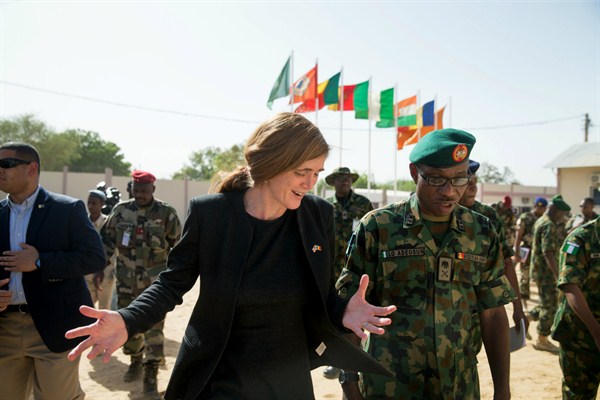In March, the small West African nation of Benin announced that it would contribute 150 soldiers to the Multinational Joint Task Force (MNTJF), a West African coalition whose main mission is to fight the militant group Boko Haram. The task force has approximately 9,000 total troops, but nevertheless it is primarily a political prop rather than an integrated military outfit. The region’s national militaries largely pursue their own campaigns, while the optics of regional integration serve a political purpose: They explicitly support narratives about so-called African solutions to African problems, yet implicitly facilitate greater Western involvement in the fight against Boko Haram, often on a bilateral rather than truly multilateral basis. The regional approach also strengthens the political positions of authoritarian rulers in the region.
The task force was originally founded in 1998 by Nigeria, Chad and Niger to address banditry around Lake Chad. From 2013 to 2015, pressure grew to restructure the MNJTF as an anti-Boko Haram force as the group’s insurgency transformed. That transformation involved several features: Boko Haram’s open bid for territorial control in northwestern Nigeria, the corresponding escalation of the attendant humanitarian crisis, and an increasing spillover of Boko Haram’s violence into Cameroon and other neighboring countries. All of these developments evoked pressure for a regional response. Meanwhile, African and Western governments increasingly lost confidence in the capabilities of Nigeria’s then-president, Goodluck Jonathan, who served from 2010 until May 2015, when he left office after losing an election to former military head of state Muhammadu Buhari.
In January 2015, as a military campaign began to retake territory from Boko Haram, the MNJTF received formal authorization from the African Union. The reconstituted task force was organized partly under the auspices of the Lake Chad Basin Commission, which is made up of Nigeria, Chad, Cameroon and Niger, with Benin as an honorary member.

